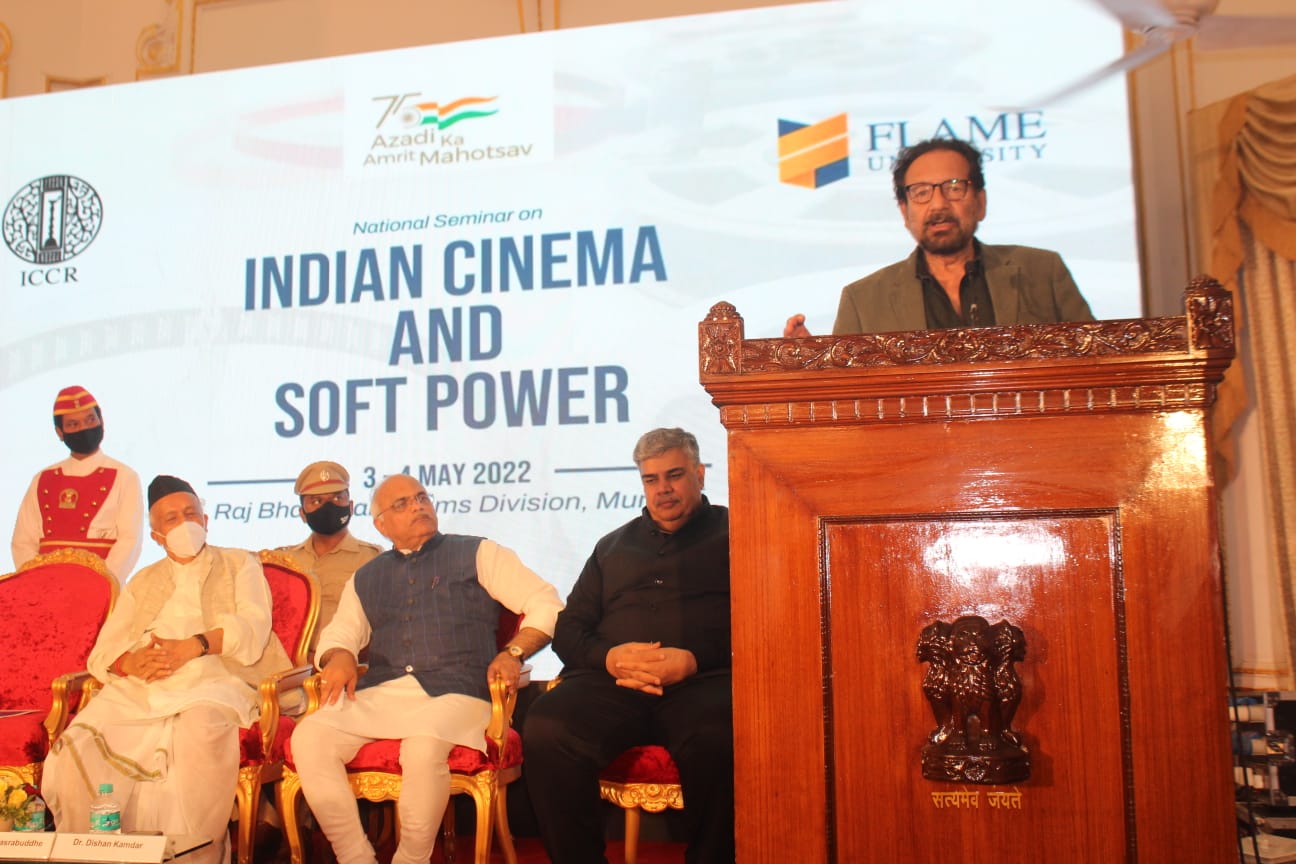Ahmedabad
(Head Office)Address : 506, 3rd EYE THREE (III), Opp. Induben Khakhrawala, Girish Cold Drink Cross Road, CG Road, Navrangpura, Ahmedabad, 380009.
Mobile : 8469231587 / 9586028957
Telephone : 079-40098991
E-mail: dics.upsc@gmail.com

Indian Cinema’s soft power
Background: This editorial talks about the untapped potential of Indian Cinema. You can use some of the content in your essay paper and GS-I paper.
How does Cinema influence in our daily life?
• It acts as the only source of information about other cultures, it acted as a powerful device to build a perception about “others” in the increasingly anxious globalising world.
• From the treatment at the hands of an immigration officer in a foreign airport to making friends at a university abroad, cinema has often unknowingly influenced how foreigners are treated in a host country.
From where did idea of soft power emerge?
• Joseph Nye, the noted political scientist, introduced the concept of “soft power” in his book Bound to Lead: the Changing Nature of American Power.
• The idea is not to force someone to do something you want him to do, but to make him want what you want him to do.
• Nye’s proposed soft power comes from culture, political values and foreign policies. If a country or its people are regarded or admired more than others, it carries a greater soft power.
• If culture is a crucial ingredient, and cinema a powerful vehicle for spreading awareness about a country’s culture, it in turn becomes a crucial tool for a country’s soft power.
• Scholars have noted the significant role Hollywood has played in helping the US win the ideological battle against communism during the Cold War, spreading American values like liberalism and free market. But America is not alone.
• Korean leaders in the 1990s decided to use their music to build cultural influence after the Asian financial crisis and poured millions of dollars into creating a Ministry of Culture. The result is today’s K-Pop.
How can India leverage Cinema for soft power potential?
• First, it is important to go beyond Bollywood. This year, regional cinema has grossed more than Pan-Indian Hindi cinema. This very fact punctures the Mumbai-centric imagination of Indian cinema.
• Second, OTT platforms have shown that subtitling works. Indian cinema producers need to tap newer markets by providing subtitled versions in all neighborhood languages. Passionate lovers of Indian movies and movie stars in former Soviet Union areas want Indian movies and TV serials but understandably subtitled in their mother tongues. AI-assisted technologies could be leveraged for this.
• Third, Indian film music should find its way into ordinary streets, restaurants and public spaces abroad. Airlines and hotels in India can promote Indian music as formally suggested by a group of Indian music maestros recently to the
Civil Aviation Minister.
• Fourth, portrayals of the country need to be balanced where deprivation is not exploited for business. There is a need to challenge the deep-rooted colonial consciousness that often surfaces on movie screens, giving rise to what one may call “cinematic colonialism”. In glorifying poverty and disregarding the ongoing efforts to overcome it, we show the India that the West wants to see.
• Lastly, the role of the government and official bodies in the film industry is important. It would be a good idea to incentivize the production of a special category of movies, say, movies promoting an understanding of Indian culture (MPUIC). The Model Film Policy must focus on creating a framework for “ease of filming” in India.
Conclusion
• With the rise of internet-based content, we need to go beyond cinema. The world is changing rapidly and if culture is going to be a valued commodity, it is important to begin investing it constructively in nation-building through various channels of its export.

Address : 506, 3rd EYE THREE (III), Opp. Induben Khakhrawala, Girish Cold Drink Cross Road, CG Road, Navrangpura, Ahmedabad, 380009.
Mobile : 8469231587 / 9586028957
Telephone : 079-40098991
E-mail: dics.upsc@gmail.com
Address: A-306, The Landmark, Urjanagar-1, Opp. Spicy Street, Kudasan – Por Road, Kudasan, Gandhinagar – 382421
Mobile : 9723832444 / 9723932444
E-mail: dics.gnagar@gmail.com
Address: 2nd Floor, 9 Shivali Society, L&T Circle, opp. Ratri Bazar, Karelibaugh, Vadodara, 390018
Mobile : 9725692037 / 9725692054
E-mail: dics.vadodara@gmail.com
Address: 403, Raj Victoria, Opp. Pal Walkway, Near Galaxy Circle, Pal, Surat-394510
Mobile : 8401031583 / 8401031587
E-mail: dics.surat@gmail.com
Address: 303,305 K 158 Complex Above Magson, Sindhubhavan Road Ahmedabad-380059
Mobile : 9974751177 / 8469231587
E-mail: dicssbr@gmail.com
Address: 57/17, 2nd Floor, Old Rajinder Nagar Market, Bada Bazaar Marg, Delhi-60
Mobile : 9104830862 / 9104830865
E-mail: dics.newdelhi@gmail.com